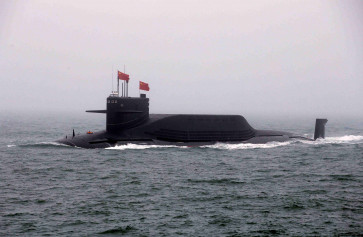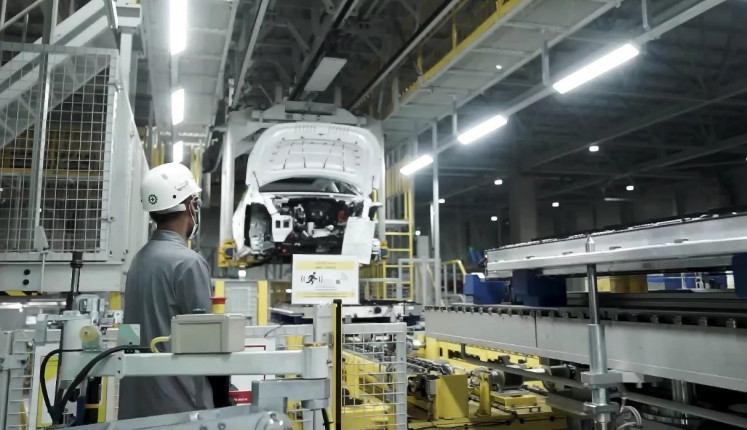Popular Reads
Top Results
Can't find what you're looking for?
View all search resultsPopular Reads
Top Results
Can't find what you're looking for?
View all search resultsE. coli bacteria contamination rampant in Yogyakarta: Survey
Change text size
Gift Premium Articles
to Anyone
 Children play on the dry Serpeng Lake in Gunung Kidul, Yogyakarta. Despite relatively wide access to drinking water sources in Yogyakarta, nearly 90 percent of households in the province are consuming water contaminated by Escherichia coli (E. coli) bacteria, making them prone to intestinal infections, a recent survey suggested. (JP/Tarko Sudiarno)
Children play on the dry Serpeng Lake in Gunung Kidul, Yogyakarta. Despite relatively wide access to drinking water sources in Yogyakarta, nearly 90 percent of households in the province are consuming water contaminated by Escherichia coli (E. coli) bacteria, making them prone to intestinal infections, a recent survey suggested. (JP/Tarko Sudiarno)
D
espite relatively wide access to drinking water sources in Yogyakarta, nearly 90 percent of households in the province are consuming water contaminated by Escherichia coli (E. coli) bacteria, making them prone to intestinal infections, a recent survey suggested.
A recent survey conducted by the Central Statistics Agency (BPS), the Health Ministry, the National Development Planning Agency (Bappenas) and UNICEF found that 89 percent of water samples collected from 940 households in the province are contaminated by E. coli.
Most of the E. coli contamination was found to be higher in rural areas, lower income households and households whose members have only received minimal education.
“The results of the survey are alarming,” BPS chief Suhariyanto said on Tuesday during the release of the survey results.
“This means that improved water sources are not always safe. If the condition is like that on Java, what about the eastern part of Indonesia?”
Most E. coli are harmless and actually are an important part of a healthy human intestinal tract. However, some E. coli are pathogenic, as they can cause illness, either diarrhea or illness outside of the intestinal tract.
The survey, conducted for about a month last year, was aimed at providing data that can be used to help the country reach Sustainable Development Goals (SDGs). It tested whether the samples contain three different substances, namely E. coli, nitrate and chloride.
Yogyakarta was chosen as the survey location, as 81 percent of households in Yogyakarta have access to improved drinking water sources, much higher than the national average of 71 percent.
The survey also found 6.3 percent of samples contain more than 50 milligram/liter of nitrate, a level that exceeds the Health Ministry’s national water quality standards. No samples were found to have chloride levels exceeding the national standard of 250 mg/L. (win/hwa)









